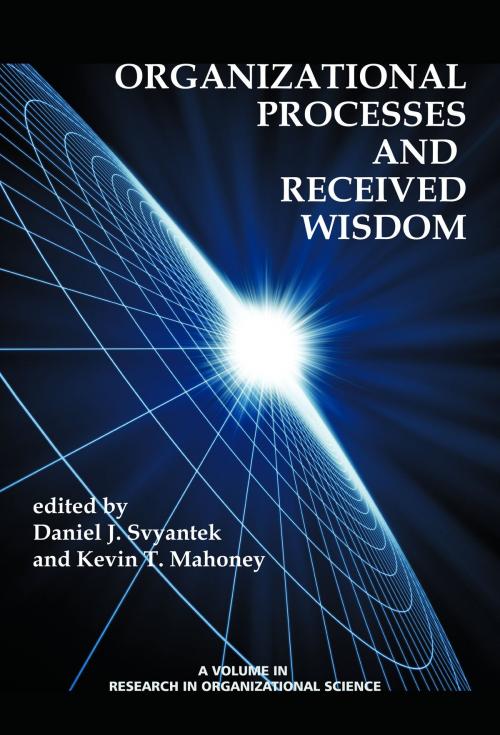Organizational Processes and Received Wisdom
Business & Finance, Management & Leadership, Management Science, Negotiating, Management| Author: | ISBN: | 9781623965525 | |
| Publisher: | Information Age Publishing | Publication: | March 1, 2014 |
| Imprint: | Information Age Publishing | Language: | English |
| Author: | |
| ISBN: | 9781623965525 |
| Publisher: | Information Age Publishing |
| Publication: | March 1, 2014 |
| Imprint: | Information Age Publishing |
| Language: | English |
This Research in Organizational Sciences volume to explore and question the received wisdom of organizational sciences. The chapters in this volume (and the companion volume) seek to establish boundary conditions for important organizational constructs and processes. They illustrate the importance of context for interpreting the received wisdom of organizational science by showing when constructs must be adapted to changing circumstances. The volume begins with four chapters looking at the construct of leadership. Each of these addresses an important aspect of our understanding of leadership and its practice. The four chapters on leadership are followed by five chapters dealing with other organizational processes including motivation, organizational change, the role of diversity in organizations and organizational citizenship. The last three chapters deal with the issue of knowledge in large systems. Two chapters address how information may be transmitted across organizations and generations of workers. The final chapter deals with the use of information by organizational decisionmakers. The 12 papers in this volume all, in some way question received wisdom and present alternatives which expand our understanding of organizational behavior. These chapters each strive to present new ways of understanding organizational constructs, and in so doing reveal how received wisdom does not always lead to best practice in research or application. It is our hope that these chapters illustrate how challenging received wisdom in organizational studies can provide new ways of thinking about organizational processes. These new ways of thinking in turn can provide better understanding of the processes necessary to increase organizational effectiveness.
This Research in Organizational Sciences volume to explore and question the received wisdom of organizational sciences. The chapters in this volume (and the companion volume) seek to establish boundary conditions for important organizational constructs and processes. They illustrate the importance of context for interpreting the received wisdom of organizational science by showing when constructs must be adapted to changing circumstances. The volume begins with four chapters looking at the construct of leadership. Each of these addresses an important aspect of our understanding of leadership and its practice. The four chapters on leadership are followed by five chapters dealing with other organizational processes including motivation, organizational change, the role of diversity in organizations and organizational citizenship. The last three chapters deal with the issue of knowledge in large systems. Two chapters address how information may be transmitted across organizations and generations of workers. The final chapter deals with the use of information by organizational decisionmakers. The 12 papers in this volume all, in some way question received wisdom and present alternatives which expand our understanding of organizational behavior. These chapters each strive to present new ways of understanding organizational constructs, and in so doing reveal how received wisdom does not always lead to best practice in research or application. It is our hope that these chapters illustrate how challenging received wisdom in organizational studies can provide new ways of thinking about organizational processes. These new ways of thinking in turn can provide better understanding of the processes necessary to increase organizational effectiveness.















